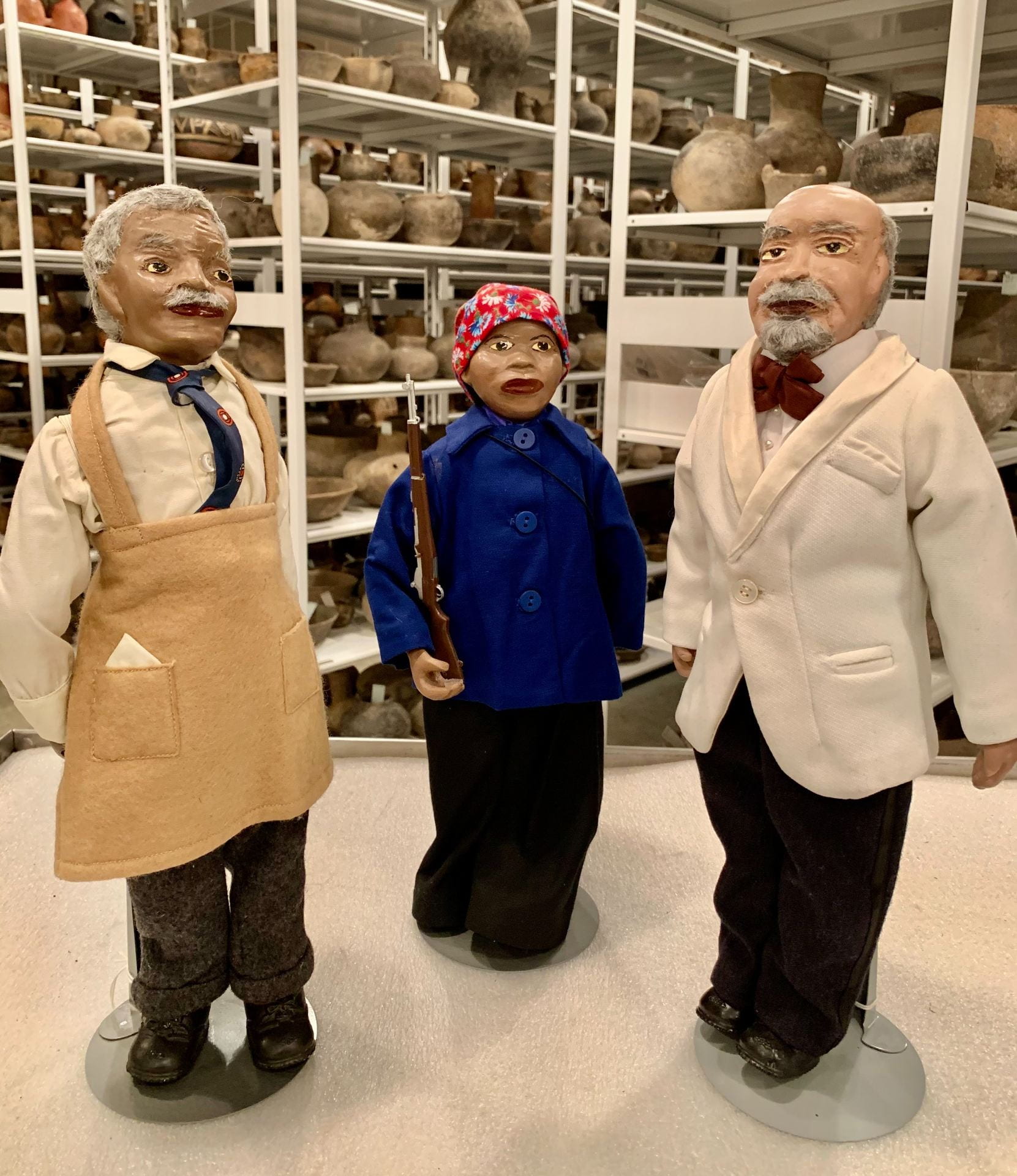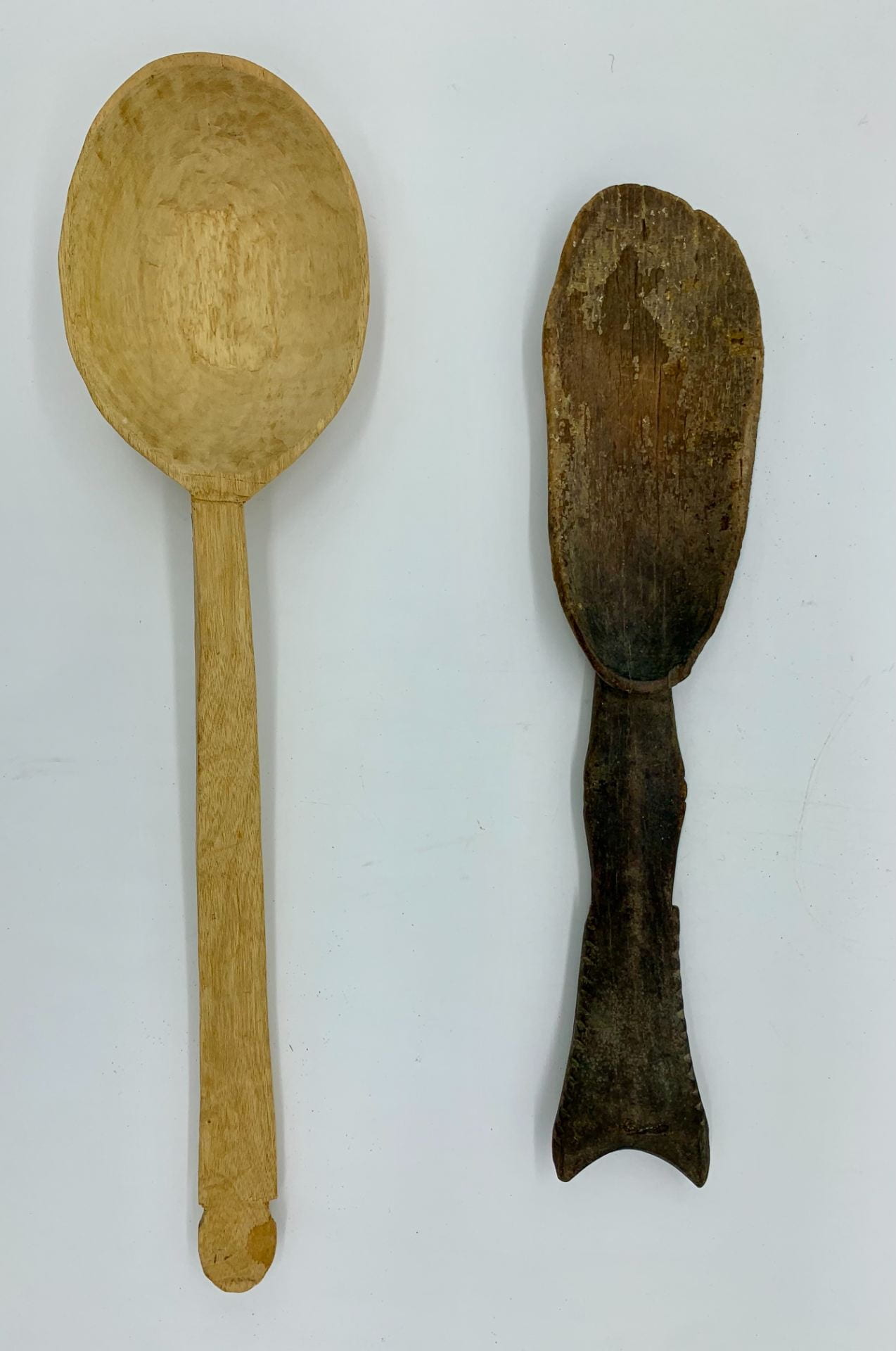April is Celebrate Diversity Month. This is a time to reflect on and celebrate the contributions of different groups, backgrounds, traditions, and cultures. The University of Arkansas Museum is home to over seven million artifacts from five different collections — archeology, geology, ethnology, history, and zoology. Present in the collections are artifacts that belong to or pay homage to different cultures. The museum serves as a hub of stories– told and untold. Behind each artifact is a lived experience waiting to be shared.
It is the responsibility of the Museum to cultivate an environment that respects and celebrates the many cultures represented in the collections. Through many developing efforts, the University of Arkansas Museum has recognized that museums have not always lived up to this standard. Staff are actively working to ensure the Museum addresses this and serves as a source of inclusive engagement and meaningful conversations.
Here is a selection of artifacts highlighting a few of the many peoples and cultures represented in the Museum’s collections.
Housed in the Museum’s history collection is a set of dolls of notable African American figures. The dolls were made by a school teacher, Ida Roberta Bell, to teach her students about Black history. This doll collection highlights contributions of American icons such as Harriet Tubman, George Washington Carver, and W.E. B. Du Bois to name just a few.

Cooking and preparing food is a daily activity that transcends all cultures and places. The ethnology collection includes functional objects from all over the world that give insight into the daily lives of the people to which the objects belong. Pictured here is a rice ladle from Liberia and a hand-carved wooden spoon from Bolivia.

There is still work to be done at the Museum in regards to diversity, equity, and inclusion, and it will always be an ongoing effort. Next academic term, the Museum Advisory Council will include diversity, equity, and inclusion chairs on each subcommittee to ensure that DEI is a priority and consideration of all that the Museum does. Furthermore, since last October a committee has been drafting an official DEI Plan for the Museum. The first draft will be completed this May, after which it will be submitted to the University’s Office for Diversity and Inclusion for approval.
Finally, in collaboration and approval with the Museum Advisory Council, a new Mission Statement and Values were recently written. Diversity was an important factor in creating these organizational elements that guide the Museum’s identity and priorities.
Mission:
The University of Arkansas Museum is dedicated to preserving and sharing Earth’s diverse cultural and natural history inclusively for Arkansans and all through active research, education, and outreach.
Values:
SYNERGY: We kindle synergy. The University of Arkansas Museum acknowledges the integral role of our collaborators in preserving and sharing the collection. We exist to uphold group effort and invite underrepresented voices to make the museum their own. In fostering interdisciplinary connections with the campus’s students, professors, classes, departments and community individuals, we provide an inclusive platform for all to research, learn, and grow.
EXCELLENCE: We prioritize excellence. When caring for our collections, we maintain professional museum standards and practices to ensure their preservation for generations to come. In both public and online spaces, we treat all visitors and collaborators with professionalism and respect.
ETHICS: We honor ethics. We acknowledge a difficult past fraught with influences of colonialism and racism and work toward a more inclusive, transparent future, establishing a Diversity, Equity and Inclusion Planning Initiative. We are increasing our organization’s accessibility within our public and online spaces.
DIALOGUE: We inspire meaningful dialogue. We recognize the importance of engaging with relevant societal trends and issues, so we aim to create spaces for conversations. Within these spaces, we encourage deeper insights and understanding among the university community and the state of Arkansas.
SERVICE: We demonstrate service. Through outreach and programming, we actively encourage our audience to engage with our events, exhibits, and collections. As we share resources with the public, we eagerly invite research endeavors and community contributions to our organization.